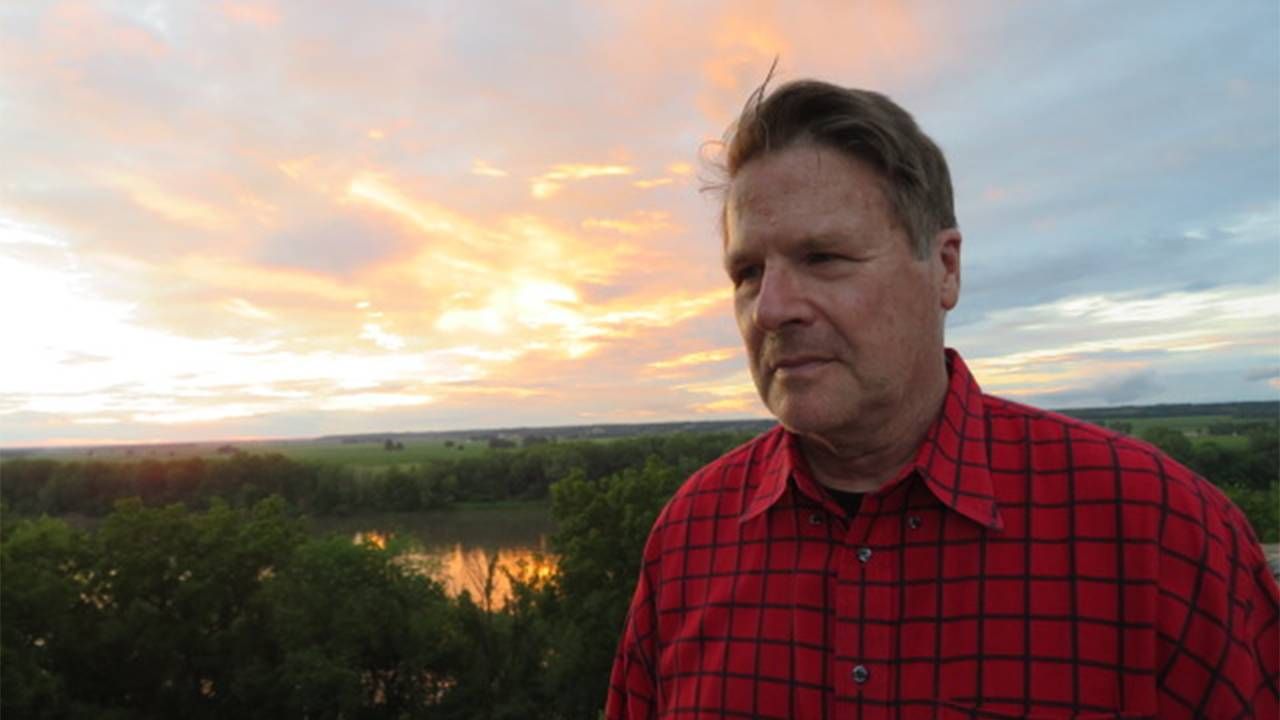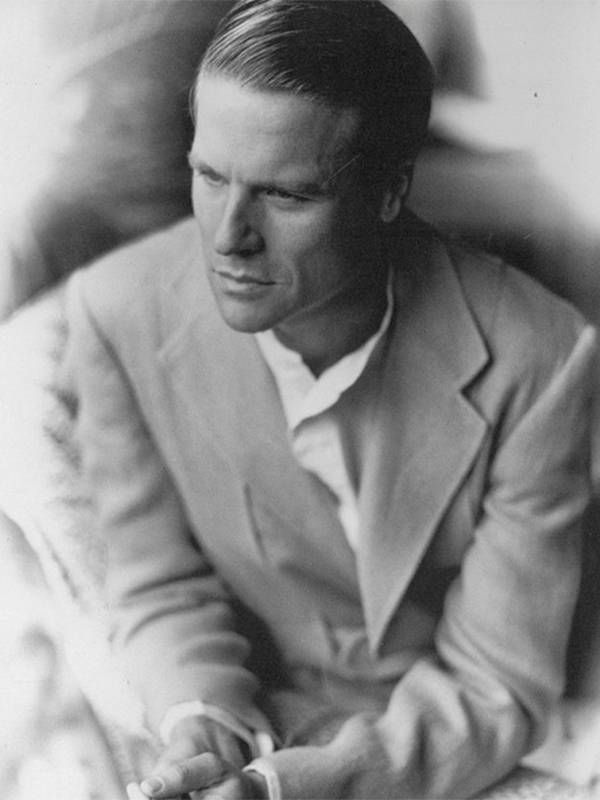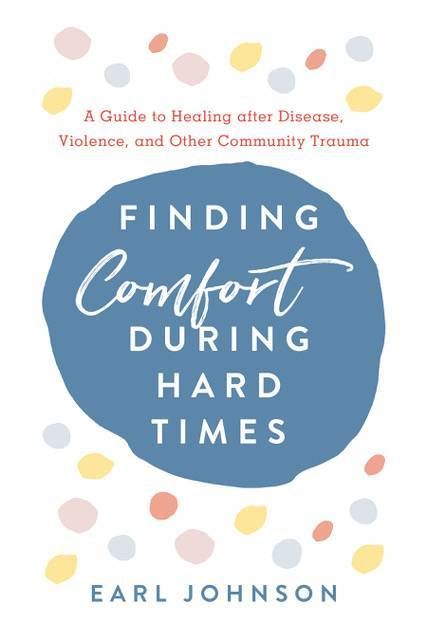Finding Comfort After Trauma
6 suggestions from a former chaplain and Red Cross crisis response leader
Earl Johnson, 70, knows how to comfort people who have experienced catastrophes. His twisting career path — from fashion model to chaplain — has brought him not only surprising opportunities, but also traumatic situations where he learned the hard way about how to offer assistance in the wake of disasters.

Johnson, the Rappahannock County, Va.-based author of the new book "Finding Comfort During Hard Times" (dubbed by the American Library Association "One of the 10 Best Health and Wellness Books of 2021"), spent a decade leading spiritual support teams following massive catastrophes, including after 9/11.
"Sometimes it's hard not to feel helpless, but I have seen firsthand how there are always ways to give and receive comfort, small yet powerful acts of kindness, even when life seems darkest," he recently told me.
Caregivers Need to Find Comfort for Themselves
In his book, Johnson offers kind and practical advice on helping victims and responders recover from horrific events, while revealing personal stories, including how he learned to stay strong in a crisis and the value of remaining true to himself.
"There are always ways to give and receive comfort, small yet powerful acts of kindness, even when life seems darkest."
A key theme of "Finding Comfort During Hard Times" — the importance of caregivers finding comfort for themselves. As he wrote, "Being a spiritual care professional means that one knows how to take care of oneself before taking care of others."
Expanding on that notion when I interviewed him, Johnson told me: "It is like the airplane oxygen mask mantra telling you to 'Put your oxygen mask on first and then help others put on theirs.'"
Johnson grew up in tiny Boonville, Mo., in a family that believed in neighbors helping neighbors. As a young man in the '60s, he wanted to make a difference in the world and went to Yale Divinity School.
Following graduation, he worked with famed anthropologist Margaret Mead in Africa, observed consequences of IRA violence in London and experienced the unrest in Jerusalem when a bomb was found on the bus he was riding.
After traveling the world, Johnson accepted a job as a Christian Church (Disciples) associate pastor in Columbia, Mo. He also studied journalism at the University of Missouri.
In the early 1980s, his life changed dramatically. Johnson came out as a gay man, took a sabbatical from the church and moved to New York City. There, a casual acquaintance recruited him to work as a model.
A handsome man with a kind and polished presence, he quickly became a celebrity in the international fashion world. Johnson lived for five years in Milan, then moved to New York City and continued working for high-end brands like Armani, Zegna and Ralph Lauren.
From Fashion Model to Chaplain
The AIDS epidemic hit the fashion business hard, and many of Johnson's friends and colleagues were victims. So, in 1994, he returned to the ministry, trained as a hospital chaplain and began work at New York City's Cabrini Medical Center. "The only way to survive that environment of death and dying was to do something," he said.

At Cabrini, Johnson supported dying AIDS patients, including those who'd been disowned by their families and their religion. While there, he met his future husband, Doug Ward, a doctor who was treating and researching this terrible disease.
Johnson said his experience with HIV/AIDS taught him "so much about how dealing with anticipated death allows us to appreciate our present lives and spirit."
On September 10, 2001, Johnson started working as a chaplain at the Washington Hospital Center. On his second day of work — September 11 — he began caring for the Pentagon terrorist attack's victims and its first responders.
Soon, the American Red Cross asked Johnson to lead the effort expanding its crisis response teams. So, for a decade, he managed activities at some of the nation's worst disasters, including Hurricane Katrina and the Virginia Tech shootings. Johnson offered comfort after floods and tornadoes, acts of terrorism, fires and other catastrophes.
When he turned 60, Johnson retired. He was exhausted and needed time to mend, reminding himself that "the first rule for offering comfort is to take care of yourself."
Lately, he has created a balanced new career phase. He now devotes much of his life to the people and pastimes he loves. At the same time, his calling continues to be fostering healing after trauma, which he pursues part-time through what he calls "an old love" — journalism.
6 Ways to Find Comfort
While Johnson hasn't entirely recovered from his intense years helping others address desperate situations, he said he's determined to not live in a "state of perpetual grief."

He also remains committed to self-care and offers the following six strategies to help cultivate well-being. They may help you, too, to move past tragic events.
1. Acknowledge the trauma. Instead of trying to tough it out, be compassionate with yourself and recognize you have been through something difficult. Johnson says no one truly "gets over" trauma, but you can move forward.
Journaling about your experience may help you accept your journey and turn to the future. If your anxiety lingers, he said, consider speaking with a mental health professional.
2. Connect with trusted friends and relatives. When he stepped away from his full-time job, Johnson said, he "wanted to become more present in the lives of family and close friends." So, he and his husband stay in close touch with Johnson's niece and nephews and regularly travel to visit them.
They put effort into their social lives, as well, and often pause to recognize special moments and people.
3. Accept comfort from animals. Johnson told me he wasn't surprised when masses of people rushed to adopt pets during the pandemic. Creating sustaining relationships with animals, he noted, can help you recuperate from shocking events.
After Hurricane Katrina, Johnson's team established pet-friendly shelters. "Those dogs and cats offered healing beyond anything a chaplain could provide," he recalled.
These days, Johnson finds joy playing with his two little dogs: Henry, a Welsh Corgi, and Sherman, a Lhasapoo.
"Those dogs and cats offered healing beyond anything a chaplain could provide."
4. Spend time in nature. As I wrote in my own new book, "Find Your Happy at Work," research suggests that even a little time in nature helps you feel happier and healthier, allowing you to release stress and cultivate a positive mindset. Johnson and Ward now live in rural Virginia, where they regularly garden and savor the mountain views.
"Shenandoah [Va.] became my cathedral," he said.
5. Laugh. Sometimes survivors of devastation feel guilty when they start to have fun again. But, said Johnson, "joy and laughter should be guilt-free."
He believes in the "healing power of laughter" and seeks enjoyment in films, music, theater, museums and social events.
6. Create rituals — meaningful routines you perform regularly. "Rituals help people feel like they are not alone," said Johnson.
Some, like daily prayer or meditation, allow you to give thanks, feel more centered or connect with your values. Simple rituals like observing anniversaries can remind you of special people and events in your life, too.
Comforting others and taking care of yourself seem to go hand in hand, Johnson explained. "Find the ways to give yourself a breather, notice the good things in life, and gather the strength that allows you to be there for other people," he advised.

